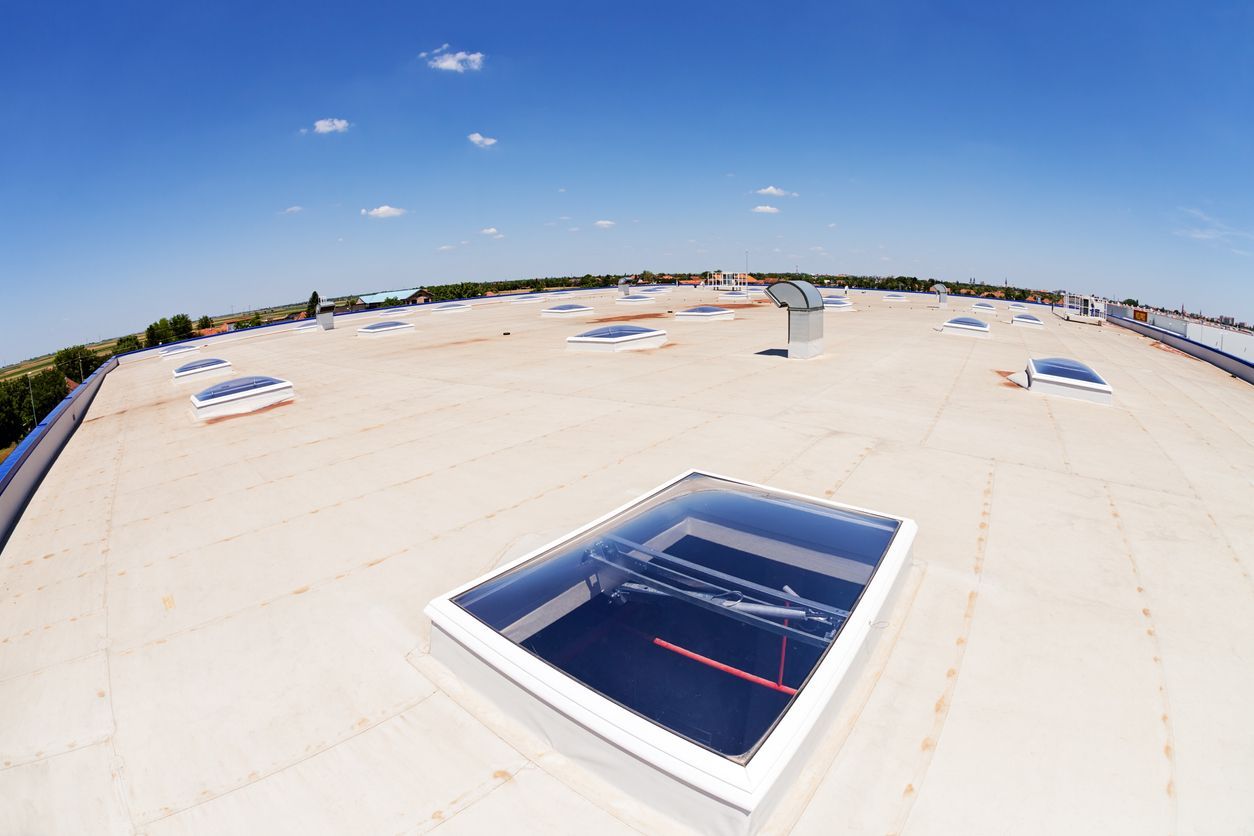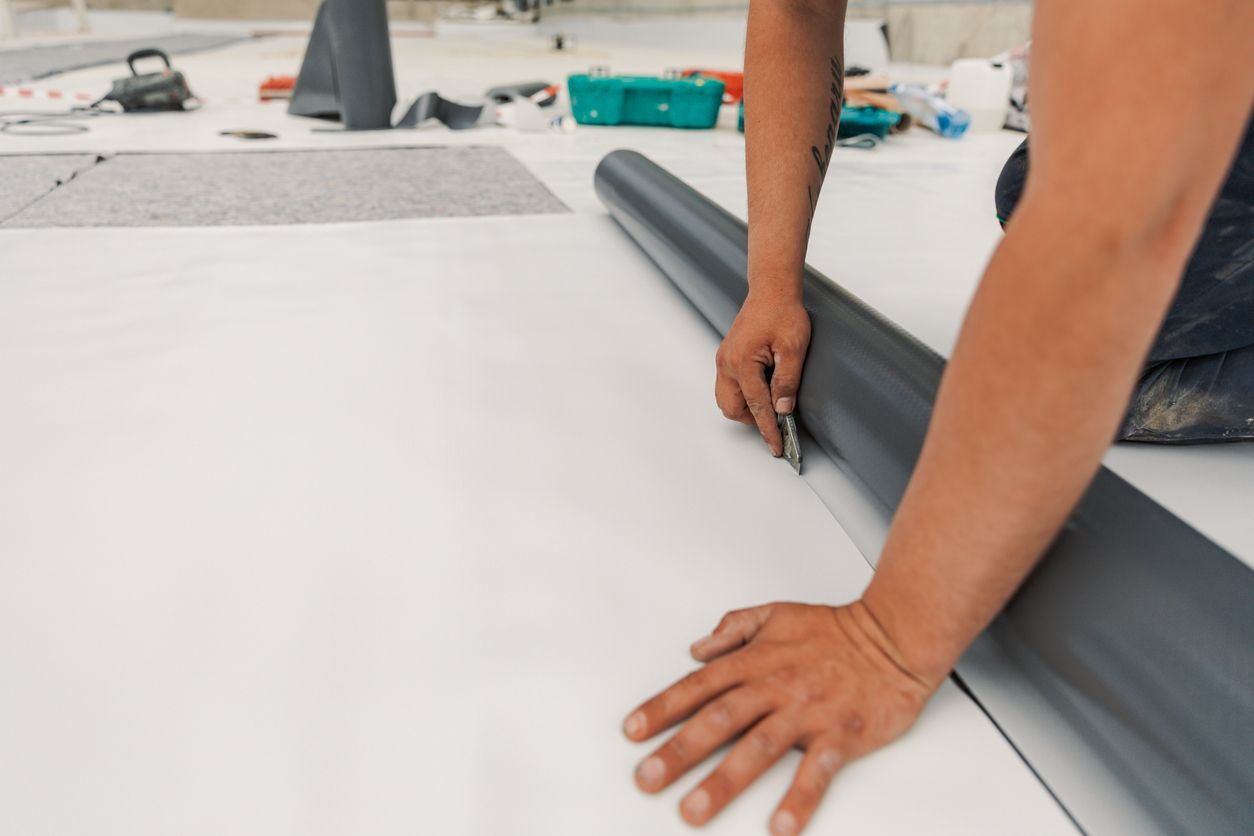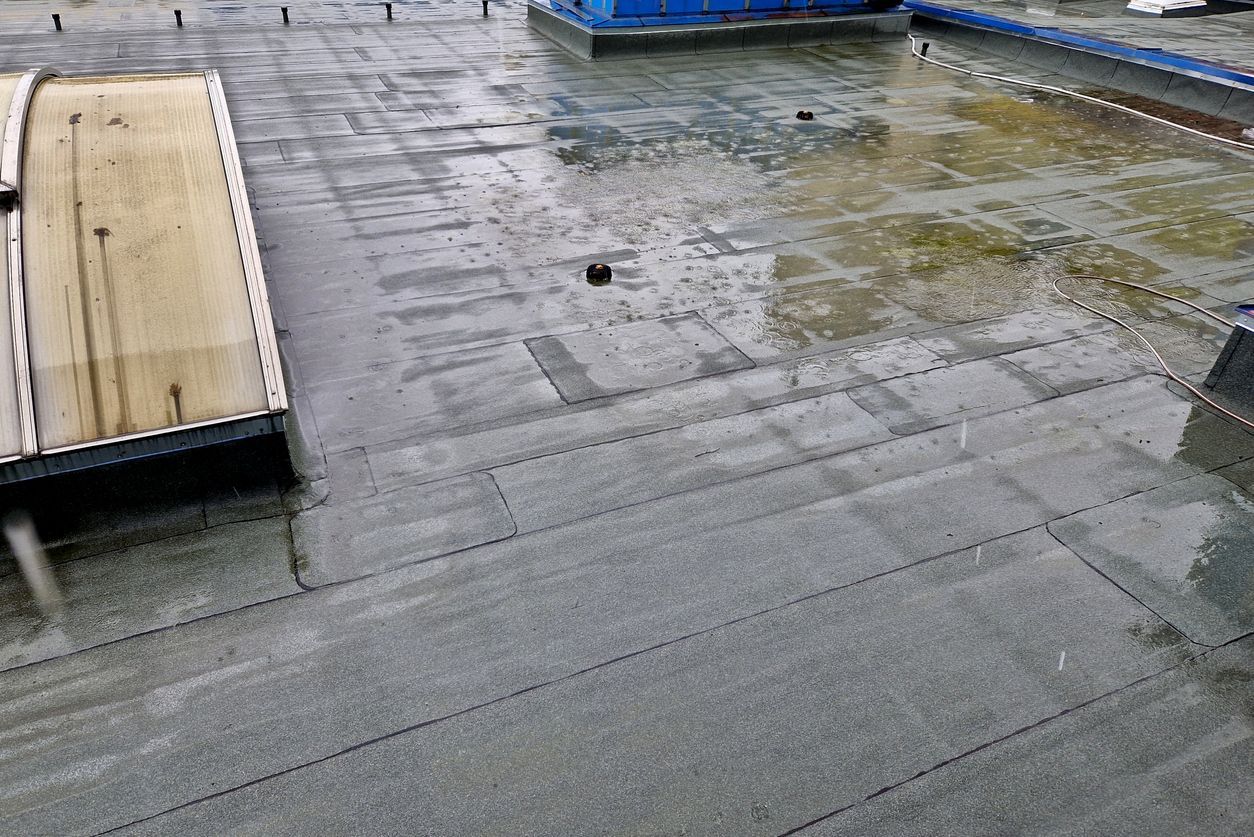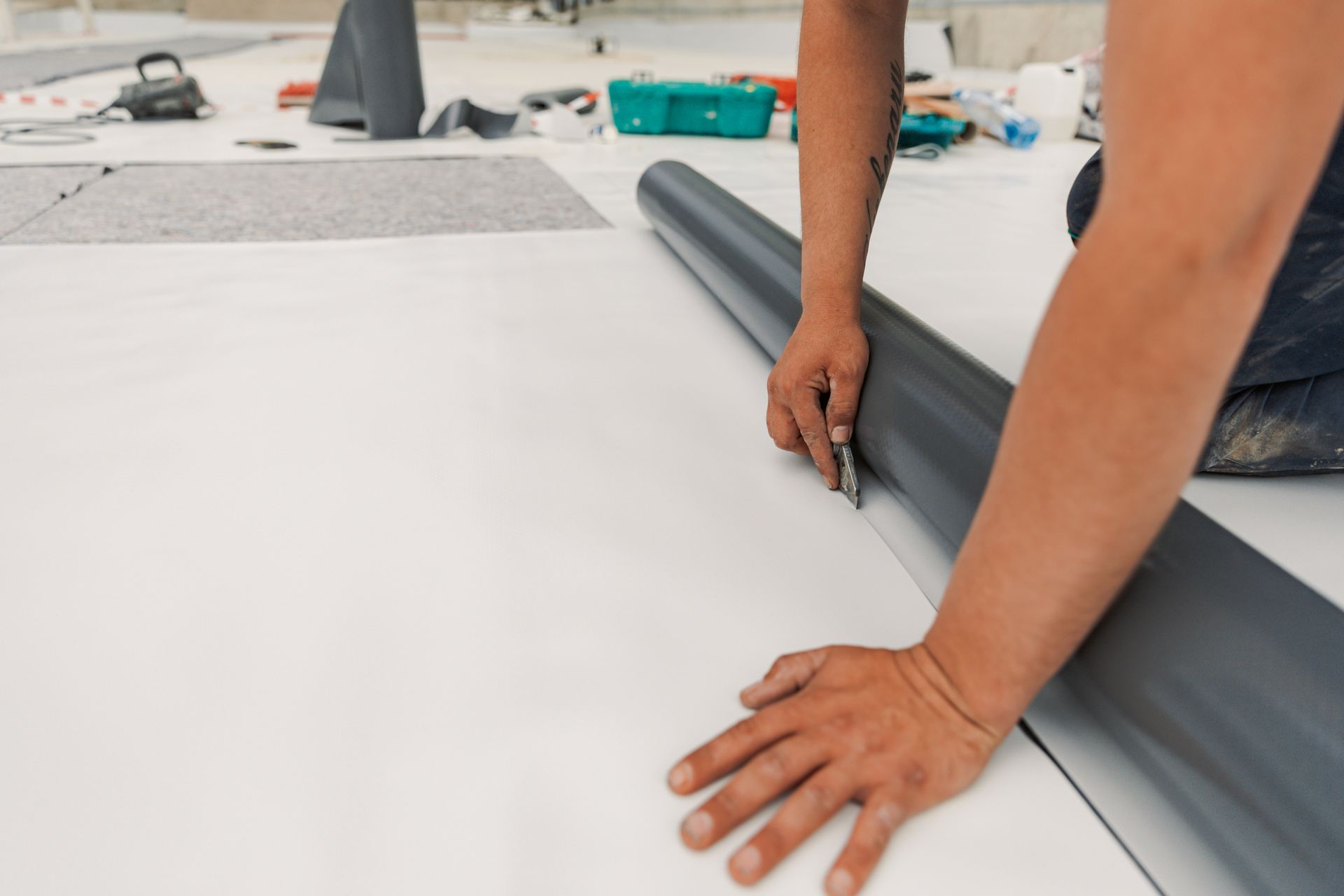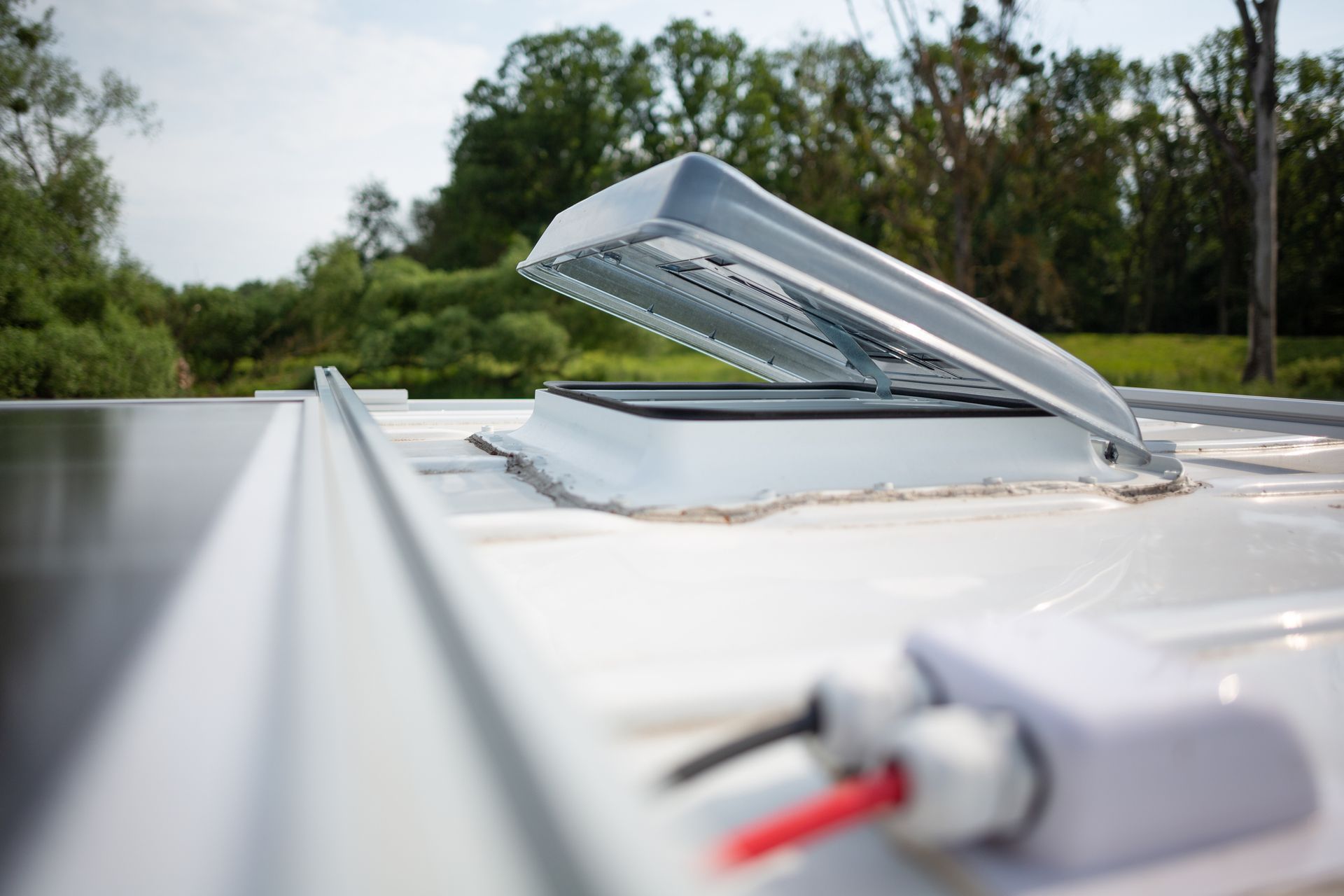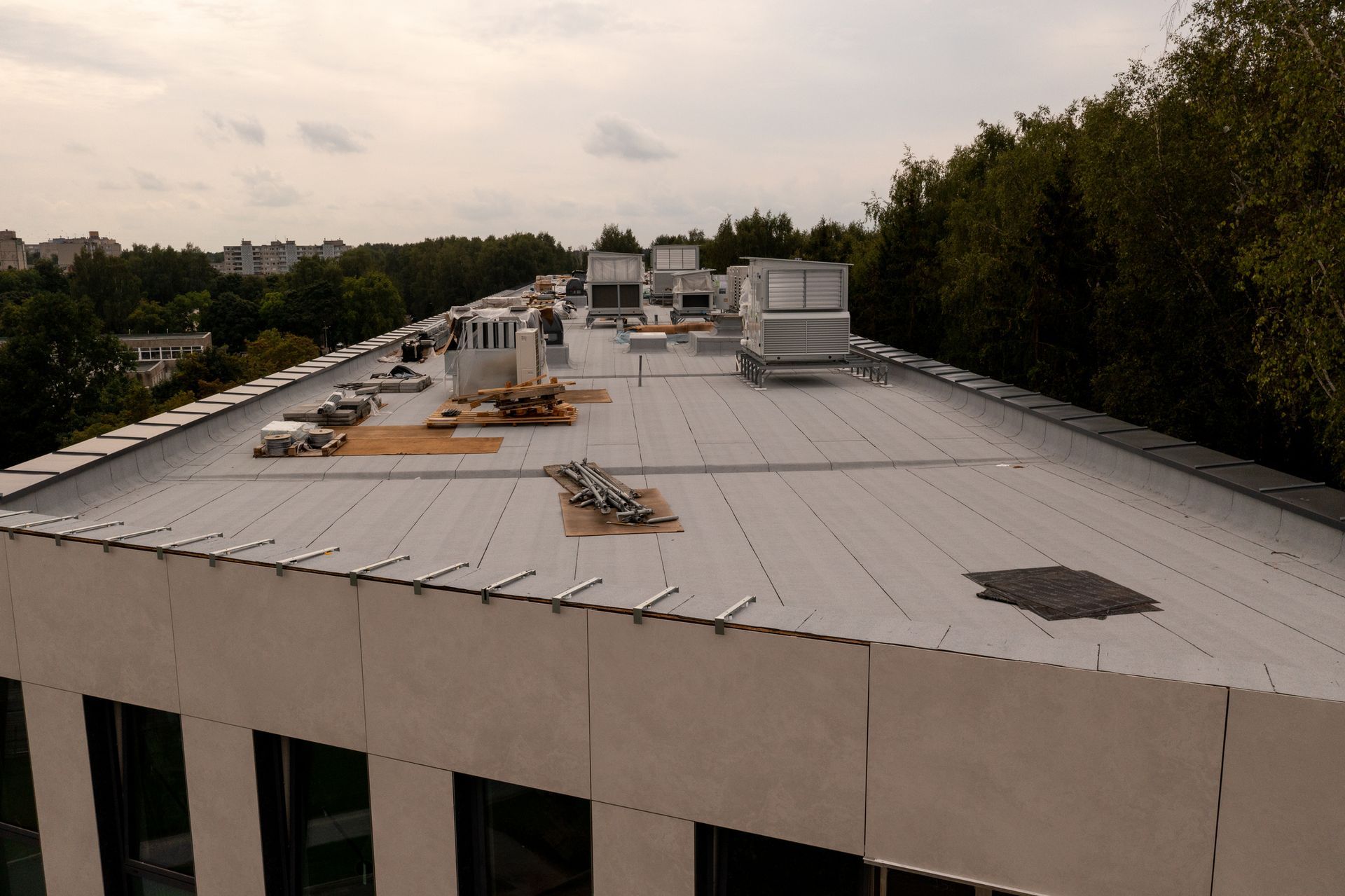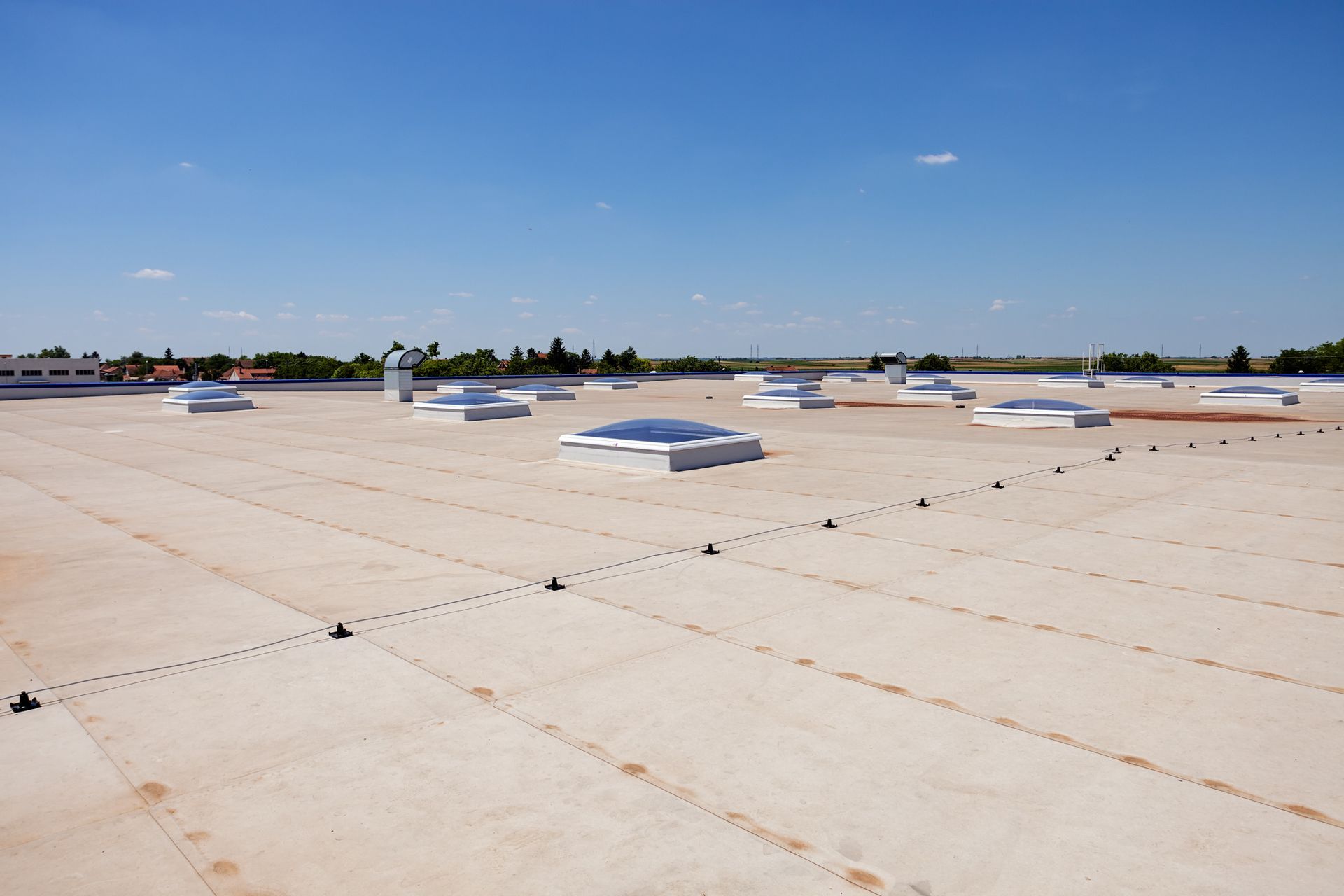Flat Roof Frustrations? When Repairs, Not Reroofs, Are the Answer
Your commercial building's flat roof – it's out of sight, out of mind, until it's not. A leaky flat roof can lead to costly damage, impacting everything from inventory to operations. But what happens when your roof is showing signs of trouble, yet it's too new for a full replacement? You're in that tricky zone where flat roof repairs are essential. This post will explore the ins and outs of repairing flat roofs, particularly when they're too young for a complete overhaul.
Understanding Your Flat Roof System
Before diving into repairs, it's crucial to know what kind of flat roof you have. Different roofing systems require different repair approaches.
- EPDM (Ethylene Propylene Diene Monomer): A synthetic rubber roofing membrane, typically black, known for its durability and weather resistance. EPDM repairs often involve patching or using specialized sealants.
- TPO (Thermoplastic Polyolefin): A single-ply membrane that's gaining popularity due to its energy efficiency and reflectivity (typically white or other light, neutral color) . TPO repairs can be similar to EPDM, often involving heat welding or specialized adhesives.
- PVC (Polyvinyl Chloride): Another single-ply membrane (typically white), PVC is known for its chemical resistance and durability. PVC repairs generally involve heat welding.
- Built-Up Roofing (BUR): A traditional system consisting of multiple layers of asphalt and reinforcing fabrics. BUR repairs can be complex and may require hot asphalt application.
- Modified Bitumen: Similar to BUR, modified bitumen incorporates polymers for enhanced flexibility and performance. Repairs often involve heat welding or torch-applied methods.
Signs Your Flat Roof Needs Repairs (Not Replacement)
While a brand-new roof is unlikely to need a full replacement, several issues can arise that necessitate
commercial flat roof repairs. Keep an eye out for these warning signs:
- Leaks:
The most obvious sign! Water intrusion can lead to structural damage, mold growth, and those dreaded stained ceiling tiles.
- Ponding Water: Standing water on your flat roof can put extra stress on the membrane and lead to premature deterioration.
- Blistering or Bubbling: These indicate trapped moisture within the membrane, which can eventually lead to leaks.
- Cracking or Splitting: Weathering, age, and building movement can cause cracks and splits in the roofing membrane.
- Damaged Flashing: Flashing seals the edges of the roof and around penetrations like vents and skylights. Damaged flashing can be a major source of leaks.
- Granule Loss (for modified bitumen): Granules protect the membrane from UV radiation. Significant granule loss can indicate the need for repairs.
Why Repairing is Often Better (for Newer Roofs)
- Cost-Effective: Topping the list at #1, repairs are significantly less expensive than a full roof replacement.
- Extends Roof Life:
In a close 2nd place, proper repairs can add years to the life of your flat roof, also leading to a cost savings.
- Minimizes Disruption: Out 3rd item, repairs are typically quicker and less disruptive to your business operations than a full replacement.
The Importance of Professional Repairs
While some minor repairs might be tempting to DIY, it's crucial to hire a qualified roofing contractor specializing in flat roof repairs. They have the expertise to:
- Accurately assess the damage: Identifying the root cause of the problem is essential for effective repairs.
- Recommend the appropriate repair solution: Different membranes require different repair techniques, as listed above.
- Perform the repairs correctly: Proper workmanship is crucial for preventing future leaks.
- Provide warranties: Reputable contractors often offer warranties on their work, giving you peace of mind.
Don't let a leaky flat roof ruin your business. If you're noticing signs of trouble, contact a qualified roofing contractor specializing in commercial flat roof repairs. Addressing issues promptly can save you money and extend the life of your roof, preventing those unsightly stained ceiling tiles and keeping your business running smoothly.



